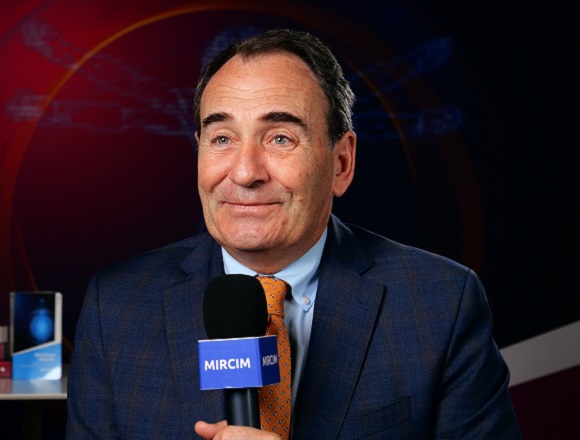Robert McLean, MD, is a rheumatologist and associate clinical professor of medicine at Yale School of Medicine, USA.
How to manage difficult-to-treat patients after a failure of allopurinol and febuxostat therapies? Is there any place for immunosuppressive agents such as methotrexate?
The issue of what to do after allopurinol or febuxostat is tricky. The guideline suggests that if someone has adequate or relatively normal renal function, adding on a uricosuric, like probenecid, which will actually be an addition, so that the allopurinol and febuxostat, essentially xanthine oxidase inhibitors, stop the production [of uric acid]. It has been discovered that many, many people who are hyperuricemic have a genetic abnormality of one of the carrier proteins in the renal tubule, so they do not adequately excrete uric acid, while they should be excreting it every day. One might ask, “Why don’t we use probenecid more to make them excrete more?” And the issue is, it’s twice a day, there’s a higher rate of just not agreeing with people—it’s not as easily tolerated—and it’s not as potent.
So, we still reach for allopurinol or, if not, febuxostat first. If, in fact, those are not helpful, there are some, I think, relatively small studies suggesting that adding on probenecid to those agents might give some added effects. So, that’s the first thing to try, at least if they have relatively normal kidney function, If they don’t have normal kidney function, if they have [kidney disease] stage 2, or 3, or higher, in all likelihood, probenecid may not add much.
Beyond that, the question is something like pegloticase, which is really quite tricky to use. There are a lot of immunologic reactions that are really tricky to track, and I would not have a primary care doctor even trying that without a lot of research. And it’s very expensive. Beyond that, it’s really tricky because there’s nothing that would suggest at this point that putting someone on an immunosuppressive like methotrexate or some of the other agents that we use in rheumatoid arthritis or psoriatic arthritis are any help long term. In the short term, if people have an acute episode—I think I mentioned this in the talk [at MIRCIM]—that sometimes an interleukin 1 (IL-1) antagonist like anakinra can be helpful with acute inflammation, because gout acute inflammation is very IL-1 driven, so blocking that acutely can be helpful, but long-term management can be really tricky. I think a lot of it is looking at other secondary causes. It’s diet—there’s no doubt people who have metabolic syndrome, who are overweight, clearly have a higher risk. Significant lifestyle changes, cutting out alcohol, and potentially changing diuretics or blood pressure medicines can have an impact.
 English
English
 Español
Español
 українська
українська







